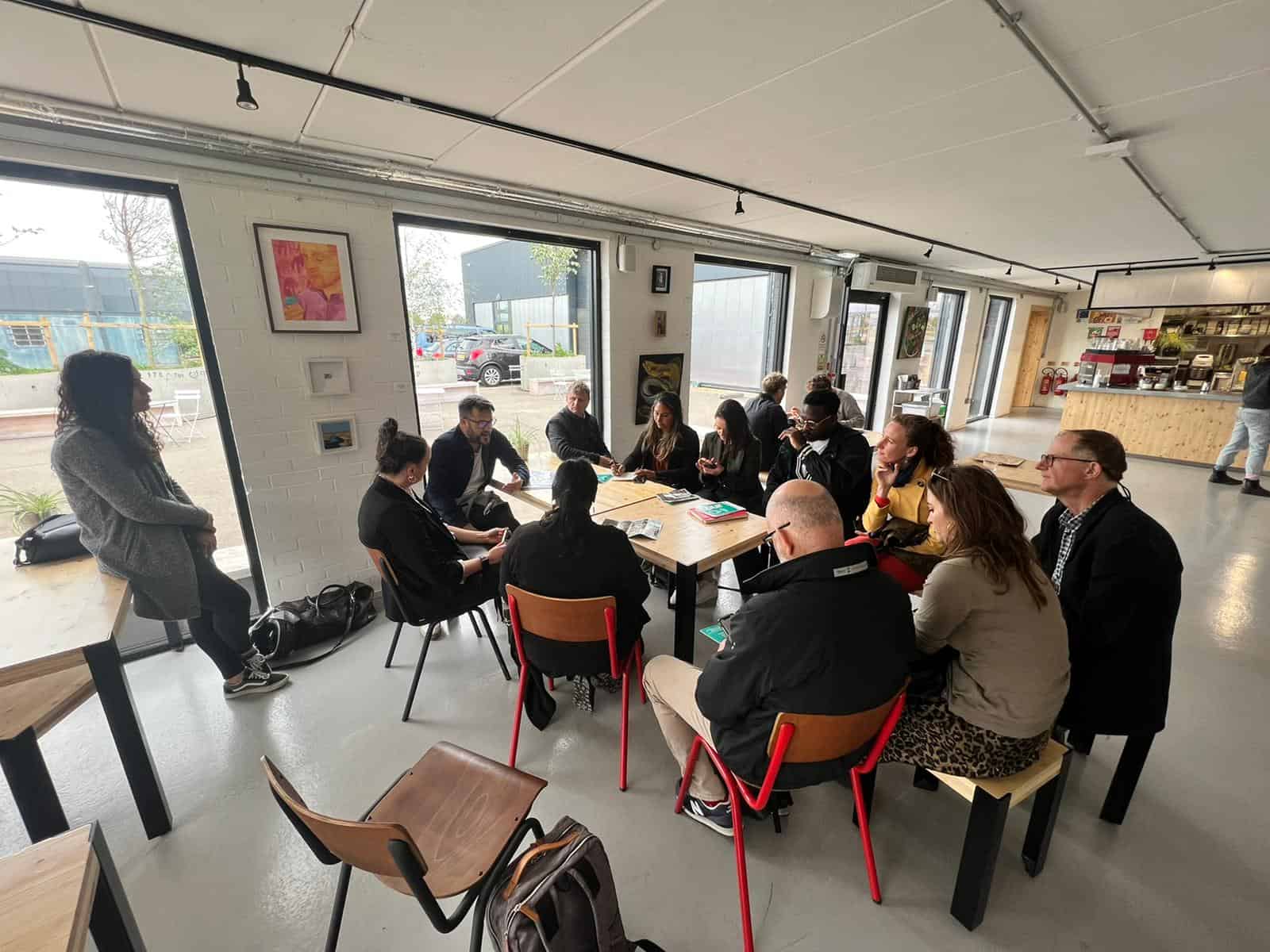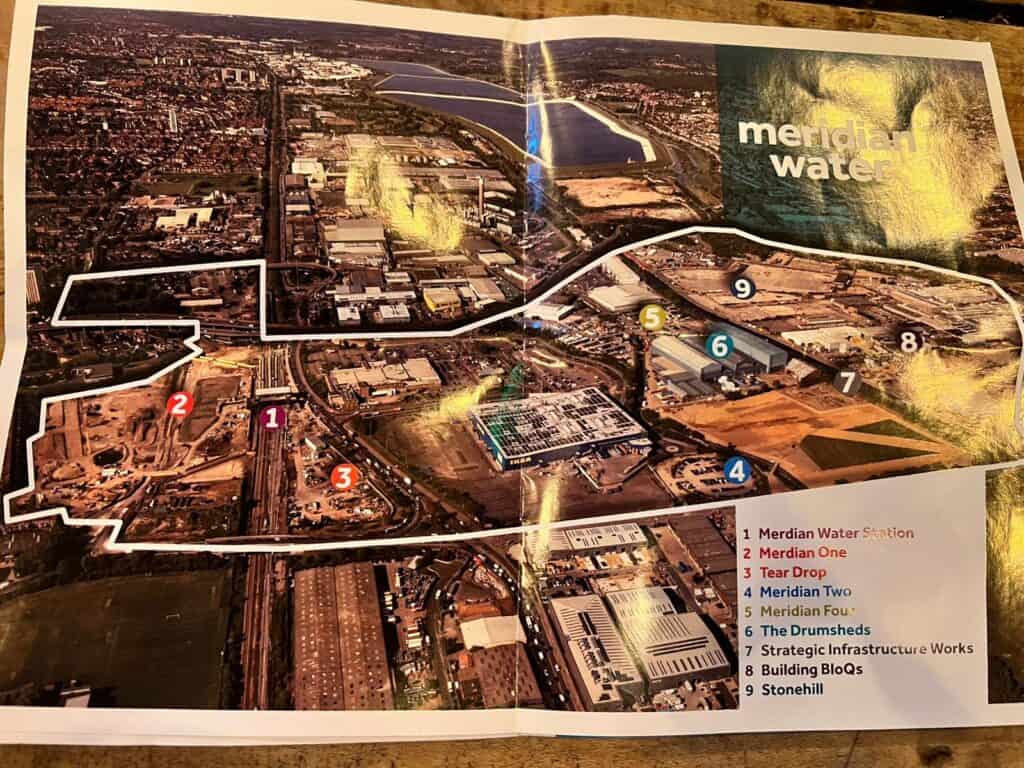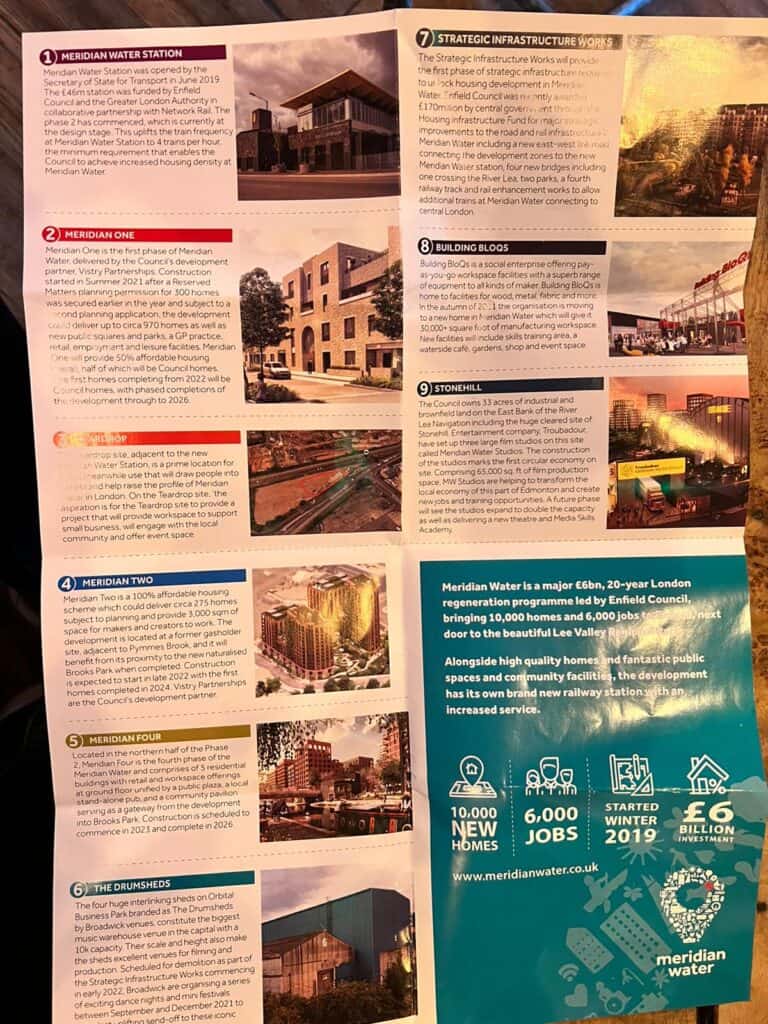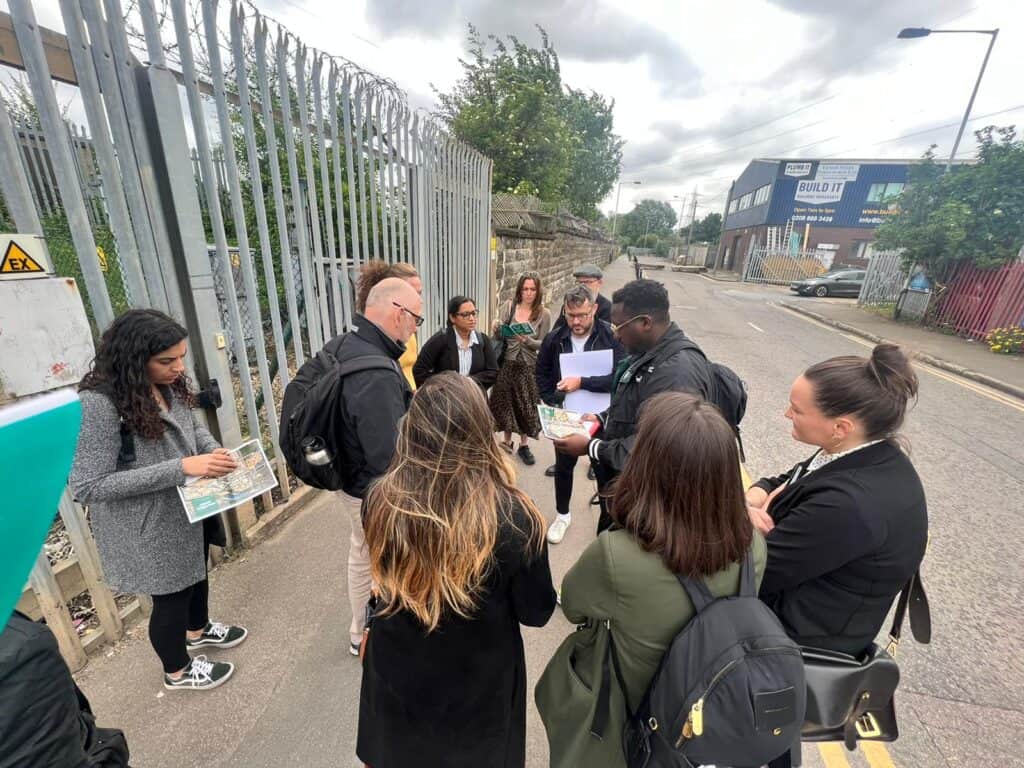Max Farrell, CEO of the LDN Collective, writes about their recent study trip to Meridian Water in Enfield.
“At UKREiiF in Leeds last week, Peter George was awarded Public Sector Pioneer of the Year for his role leading the Meridian Water project. Arguably the largest and most ambitious regeneration project in the country, it is also the first of this scale to be led by a local authority, acting as the Master Developer.

At the same conference in Leeds, I was on a panel discussing culture’s role in levelling up. There was a lively discussion about the importance of partnerships between the public sector, private sector and local communities and I singled out Meridian Water as an important new exemplar which will change perceptions of the role of local government when it comes to urban regeneration and sustainable placemaking.

Two weeks ago, the LDN Collective were given a tour of Meridian Water by Peter George and his team at Enfield, which helped form my view that this project will be a gamechanger helping us all to tackle the adversarial nature of planning we have become familiar with, where developers are seen as ‘poachers’ and under-resourced councils are forced to be the ‘game keepers’. Meridian Water is unusual as the Council took the decision several years ago to do the land assembly themselves, in order to make post-industrial regeneration possible and turn a windswept retail park and disconnected industrial park, bordered by the busy, dirty and noisy North Circular, into a new town with 10,000 homes, film studios, maker space and a major new park.
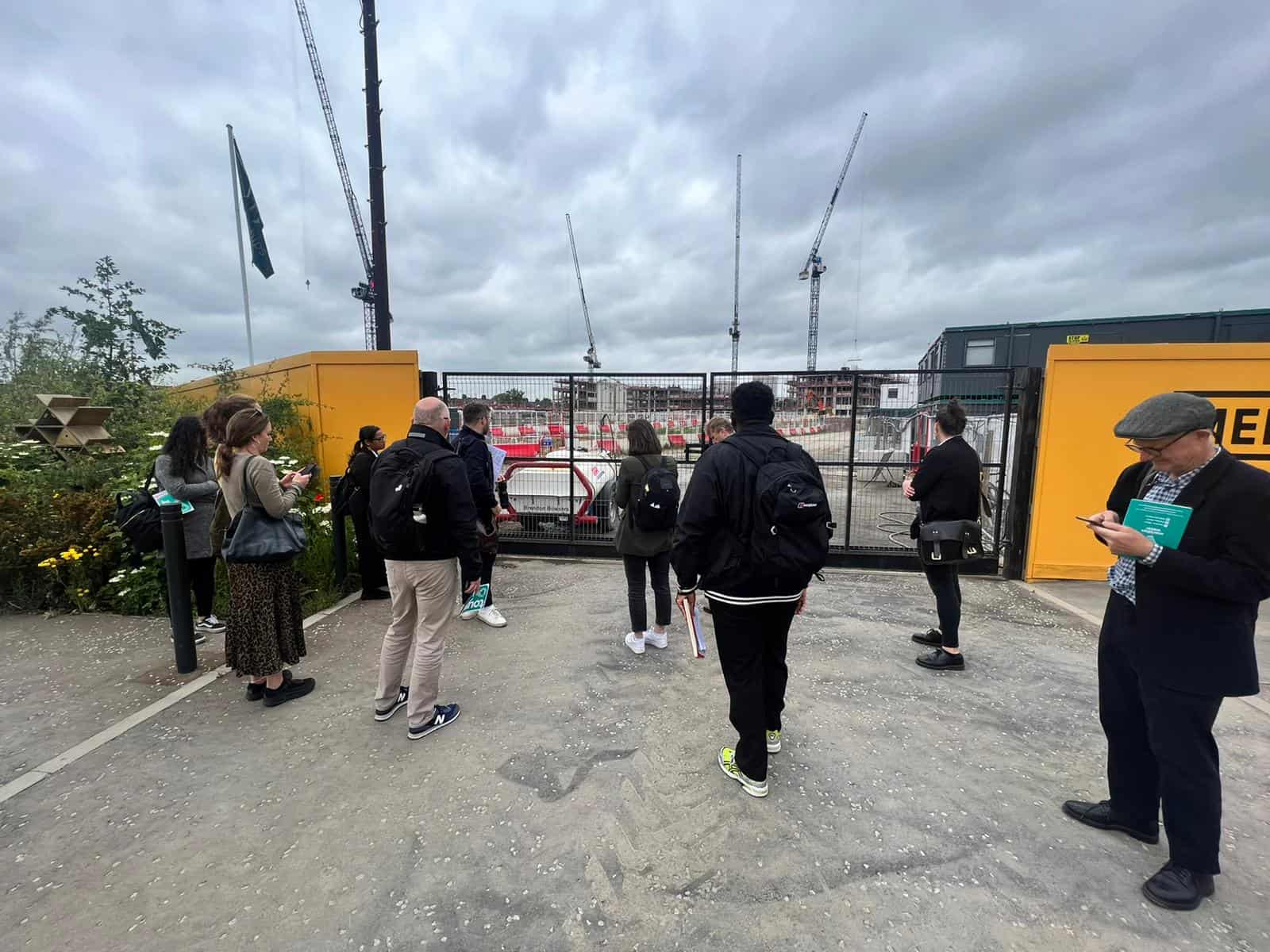
With the council taking the lead, 40% of housing will be affordable and the rest would be a mix of sale and rent with later living, student and co-living. A financial commitment of £350m, with a development value of £6 billion if they deliver. I was familiar with the project having been involved in a bid by a Hong Kong developer competing with a UK housebuilder to act as lead developer. Both had strengths and weaknesses, but neither had the Council’s deep understanding of the existing community and local character. When the new Leader was elected in 2018, the youngest woman to lead a Council in UK history, they commissioned a masterplan and took on the risk themselves, bringing in private sector partners to deliver each phase.

Karakusevic Carson Architects have created a masterplan for 40 hectares which enabled the council to successfully bid for £170m of funding to build a new train station, paying an additional £45m themselves. The station currently runs a service every half hour to Stratford, now the busiest station in London, which will increase to four trains an hour and a journey time of 15 minutes. Meridian One, the first phase, is being delivered by Vistry with 950 homes on 8 hectares of land designed by Hawkins Brown, Urban Projects Bureau, Fischer Cheng and HTA.
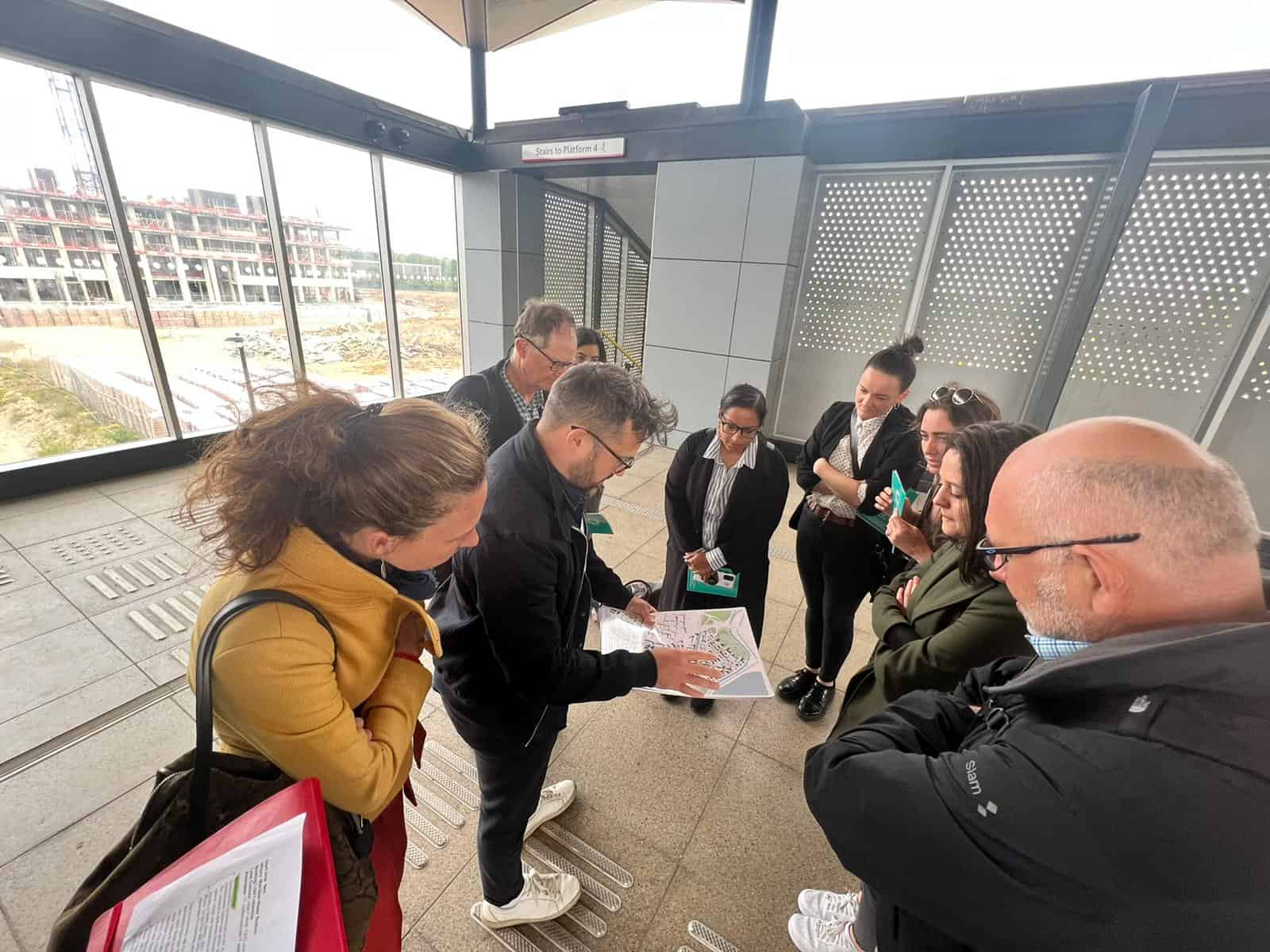
A really key element which ensures the Council is held to account and design and delivery standards are upheld is the Design Advisory Group chaired by Claire Bennie. As well as being a critical friend, this helps address concerns about the local planning authority having such a vested interest in the schemes success. Delivery partners need the support of this independent panel before they can submit for planning.
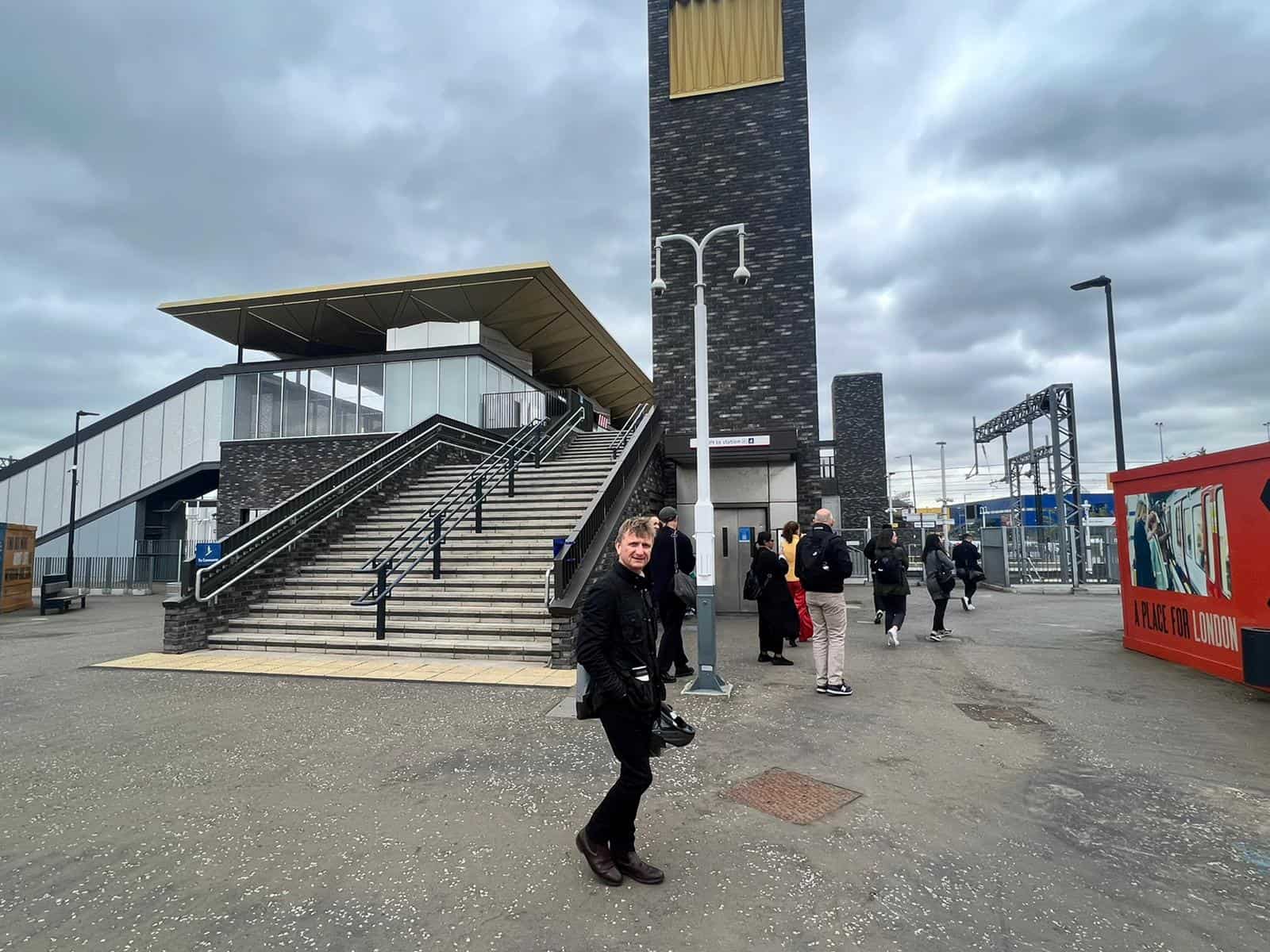
At the Station Square there are meanwhile uses planned including community gardens and a construction skills academy providing a pipeline of local talent, which opens in December. The hoardings are also artworks created by the local school working with an artist which will be moved around the development, beginning to seed the cultural blossoming of this place. Art studios like Hive who are embedded in the area are driving plans to create a street art movement, which is well suited to the grittiness and creativity found in these post-industrial parts of the city. Hackney’s Mill Co. Studios were pointed to as precedents for creative hubs that catalyse regeneration.

At the heart of this vast site are the big boxes of Tesco and Ikea which are due to be redeveloped in the later phases, with Ikea relocating now they have a major West End store and Tesco creating their own plans for high density, mixed use within the framework of the masterplan. One of the conditions the Council placed on them both as the boroughs major employers was to ensure all jobs lost were replaced, which they have now signed up for. Segro building new advanced logistics space will go some way to ensuring there is no net loss of strategic industrial land, a major constraint to housing-led development imposed by the London Plan but equally important given our reliance on goods being delivered to our doorsteps within hours these days.
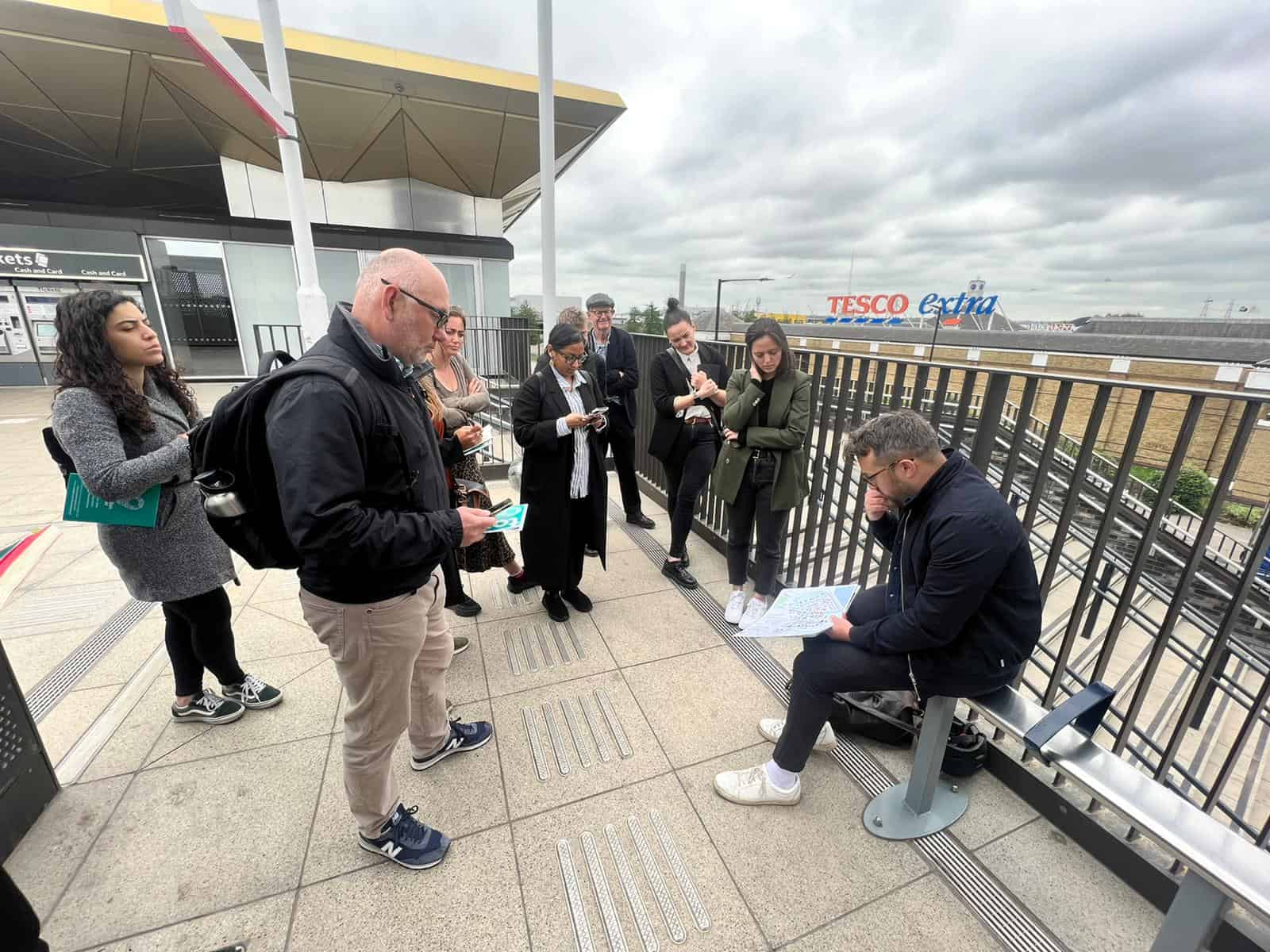
Like everyone, Meridian Water are facing the challenges caused by hyperinflation, rapidly rising material and energy costs along with labour shortages. Arguably, they are more resilient as a local authority sharing the risks with a delivery partner and taking a longer term view. However, the business model will be under immense strain given the commitments to bring infrastructure forwards early and the high levels of affordable housing. This is another reason to will them on and make this succeed, because if they can do it at this scale under these circumstances, then they can do it anywhere.
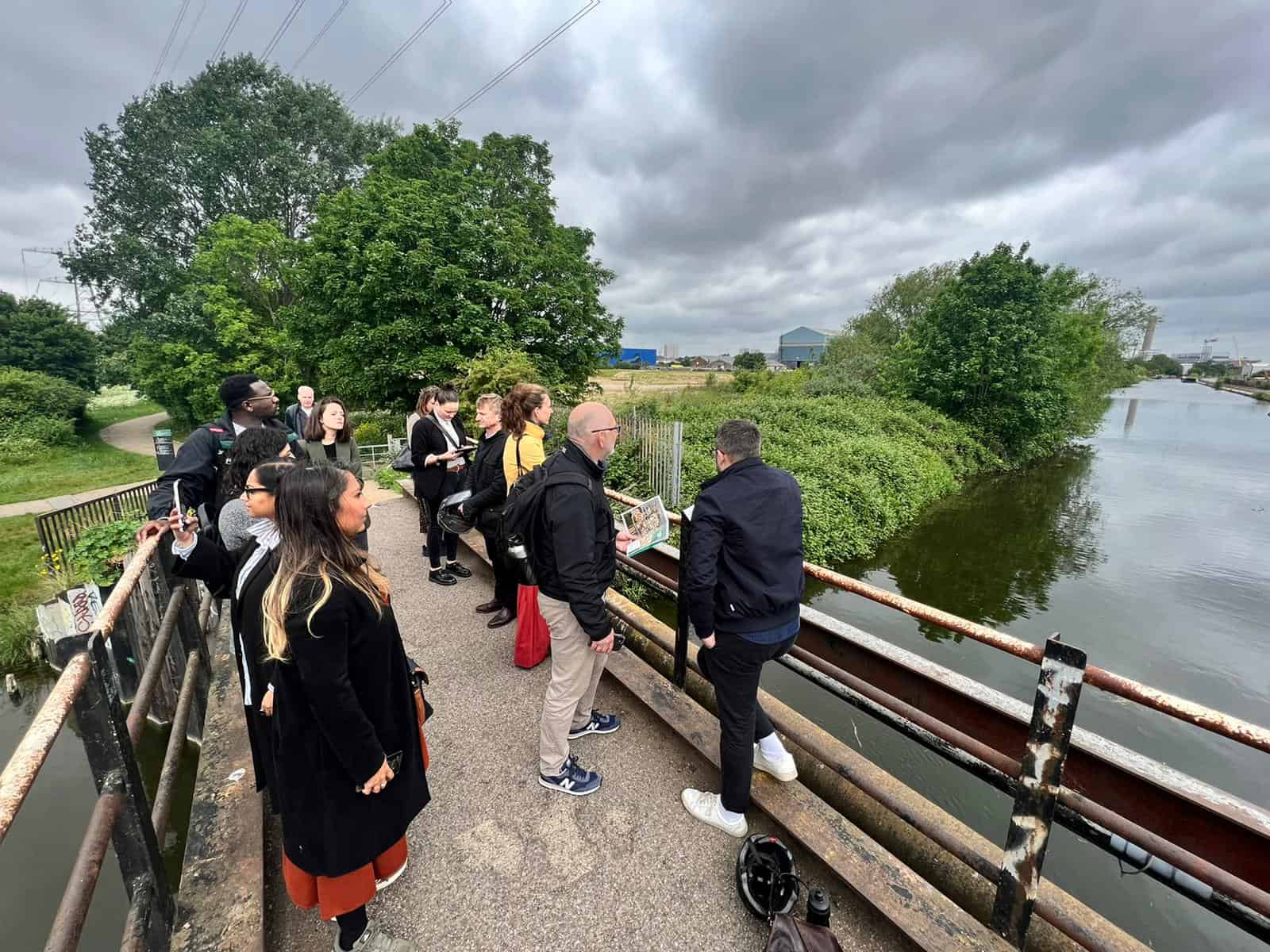
The placemaking pillars of ‘park life on your doorstep’, ‘mixed use and vibrant spaces’ ‘your place to make and create’ and ‘safe school streets’ are at the heart of everything that is happening here and we were delighted to see them being implemented already. The film studios have taken a 12 year lease, the Lea Valley Park which runs along the watercourse is being opened up and made more accessible and Building Bloqs is a fantastic new facility, enabling people to hire tools and materials on a flexible basis to make and create, also supporting a circular economy to reuse and recycle.
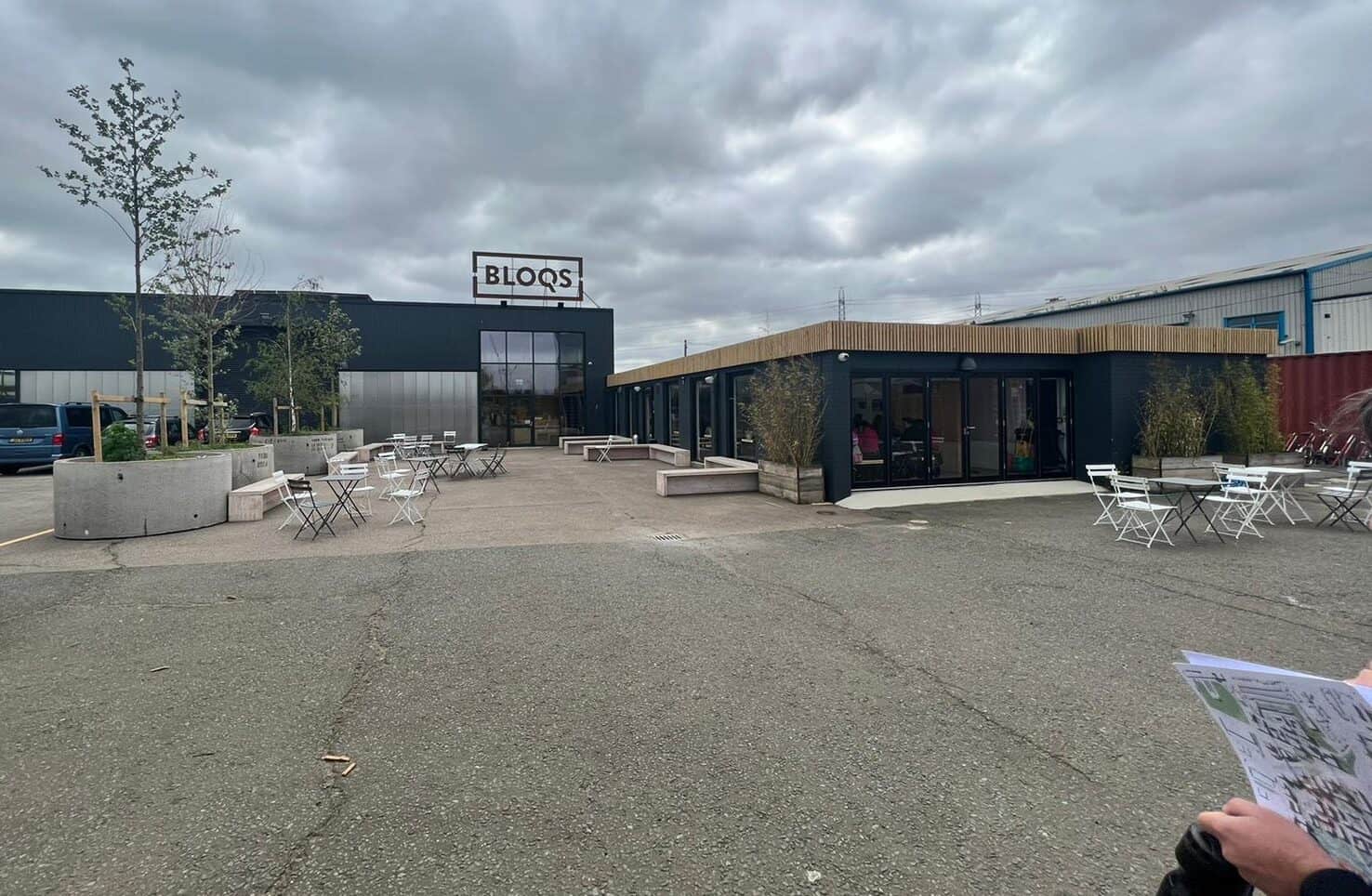
The sustainability strategy is impressive, with an incinerator heating all of the homes, 30% green space and a commitment to be carbon neutral. Active travel is being encouraged through a network of walking and cycling routes and local people are involved in every aspect from design to delivery. The commitment to diversity and equality is also pioneering, only accepting bids from design teams who have women and ethnic minority leaders at the Partner level and the Enfield team acting an exemplar for diversity and inclusion. As Peter George said, you can’t design places for people you don’t understand or represent, something we at the LDN Collective wholeheartedly agree with.
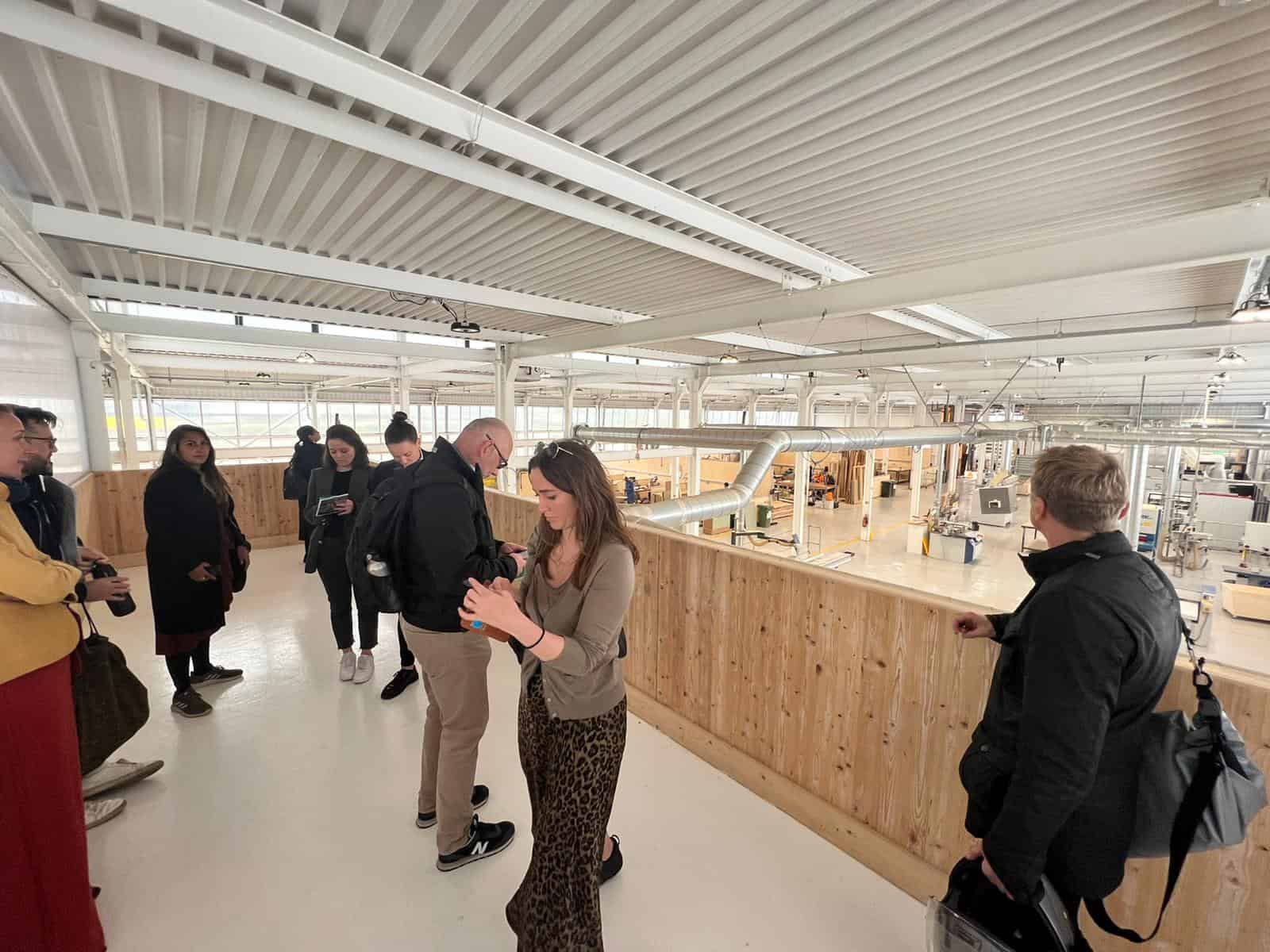
In order to make this a truly functioning 15 minute city, everything is planned to be within walking and cycling distance including schools, health services, restaurants, bars, breweries, artists studios, cinemas, street art, sports and leisure. A new bus route has been created and the level of containment and internalisation of trips is crucial, given how domineering the major roads are already in this part of London.
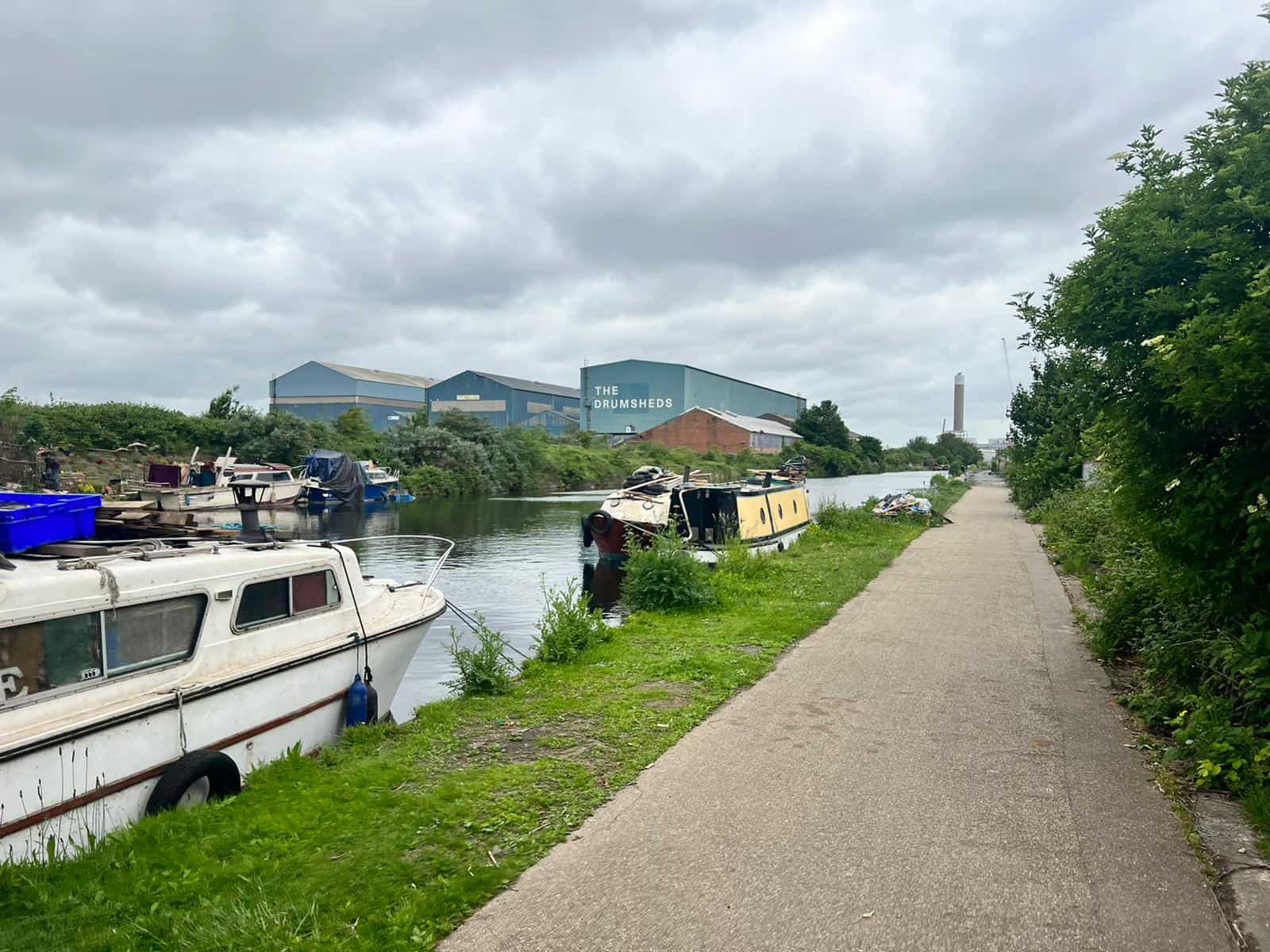
Like any large-scale, post-industrial regeneration project the biggest challenge is changing peoples perceptions of the place. So how do you start to reimagine an industrial big box landscaped severed by major roads as a new green and family-oriented neighbourhood. During the pandemic and social distancing, the drive in cinema was a spectacular success enabling 55,000 people to escape from their homes and spent some time in a place where film studios like Netflix would be soon be located. Music festivals and a partnership with the Printworks in Canada Water have all added to the buzz and anticipation of exciting things to come. The nighttime economy of Hackney Wick, engaging with the river and attracting different age groups is the admirable aspiration here.

One memorable quote from Peter George was that he would rather speak to pioneers than consultants, as pioneers tell you something new whereas consultants tell you things that have been done before. As a network of 50 built environment experts and creatives who set up our own businesses, we like to think we can do both! One thing that is undeniable is that Peter George and his team are public sector pioneers, changing the rules of the game, and we wish them every success.”
